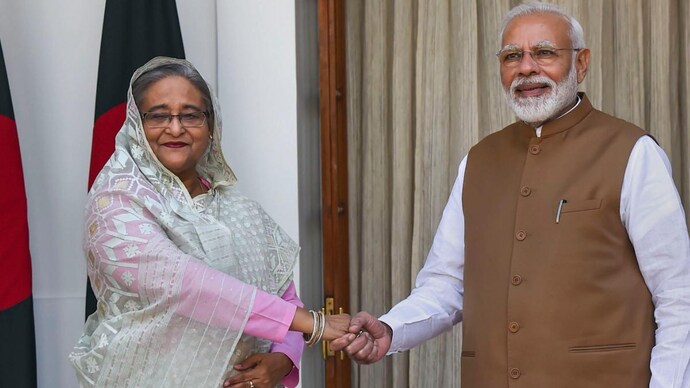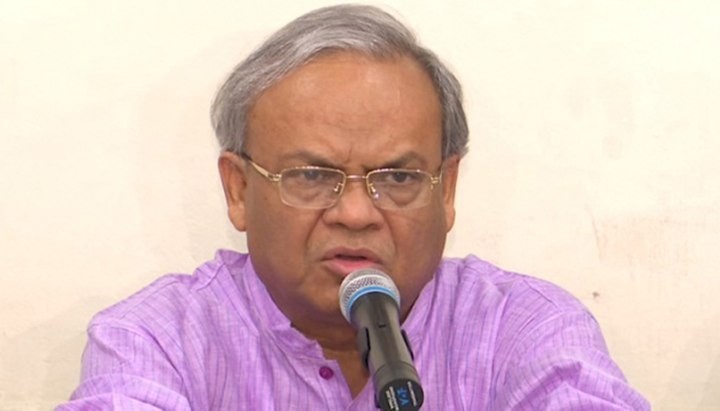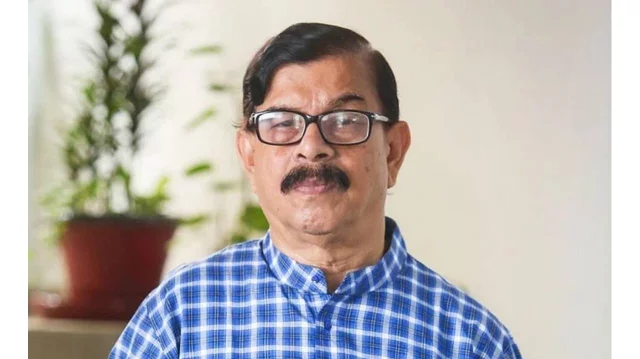Opposition parties denounce PM Hasina’s recent agreements with India as "anti-state"

Major political parties, including the main opposition Bangladesh Nationalist Party (BNP), have strongly criticized the agreements signed during Prime Minister Sheikh Hasina’s recent visit to India.
They argue that these agreements are not in the best interests of Bangladesh and its citizens.
Leaders of these parties have expressed concerns about how these agreements might affect the country’s independence and sovereignty, describing them as contrary to the state's interests.
They have also raised doubts about the advantages these agreements offer to Bangladesh.

In a unified demand, these political parties
have called for transparency regarding the nature of the understandings,
agreements, or treaties that PM Hasina reached with Indian Prime Minister
Narendra Modi during her visit to New Delhi.
They emphasized that, according to the country's constitution, it is essential to disclose such agreements or memorandums of understanding to the nation.
They allege that these agreements were made while keeping the public in the dark, asserting that the public will not accept any deals made secretly that go against the country’s interests.
During her recent trip to India, Prime Minister Hasina signed 10 Memoranda of Understanding (MoUs), including one for rail transit. If implemented, this agreement would allow India to transport goods directly from one part of the country to another through Bangladeshi territory.
Talking with Bangla Outlook, BNP’s senior joint secretary general, Ruhul Kabir Rizvi Ahmed, criticized the agreements signed by the Awami League government with India, describing them as anti-state and against the interests of the Bangladeshi people.
“The government is completely failing to realize the demands from India,” he said.
“Our party, the BNP, rejects these agreements as they go against the interests of Bangladesh. I want to say clearly that the BNP was created to protect the sovereignty of the country, and we will take all necessary measures to safeguard our independence and sovereignty,” said Rizvi.

Recently, Hefazat-e-Islam Bangladesh's Amir,
Allama Shah Muhibullah Babunagari, issued a statement regarding the signing of
the 10 agreements and memorandums of understanding with the Modi government.
In the statement, Shah Muhibullah Babunagari asserted that the people of Bangladesh would not accept any anti-national agreements or understandings with the Modi government.
“Prioritizing India's interests over our own is not friendship but rather akin to servitude. We have seen such instances of servitude in the past to maintain power unlawfully. However, the outcome of servitude is never honorable. It will be consigned to the dustbin of history,” the statement said.
The Left Democratic Alliance has also demanded transparency regarding the agreements made between PM Hasina and Indian PM Modi.
In a meeting on Tuesday, the alliance leaders called for the immediate cancellation of the decision to grant India a railway corridor and urged the finalization of a water-sharing agreement to secure a fair share of Teesta River water.
The AB Party has similarly condemned the agreement allowing Indian trains to operate through Bangladeshi territory without public consent, calling it a conspiracy against sovereignty.
The party leaders alleged that the government has signed unfair agreements and memorandums of understanding with India. These accusations were made at a press conference held at the party’s central office in Bijoynagar, Dhaka, on Monday.
Tajul Islam, the party's Joint Convenor, stated, “We strongly condemn the anti-people agreements made by the government with a neighboring state while keeping the people of Bangladesh in the dark. Article 145 of the Constitution of Bangladesh states that any agreement with a foreign state must be presented in Parliament. However, the Awami League has never done this.”

Mahmudur Rahman Manna, president of Nagorik
Oikya, expressed similar concerns, pointing out the potential security risks of
allowing Indian trains to travel through Bangladesh.
“Is this called transit? This is called a corridor. What if weapons or soldiers are transported on these trains? Will you be able to inspect them? India now wants to create a route to the Seven Sisters region through Bangladesh,” he said at a human chain organized by Nagorik Oikya in front of the National Press Club on Wednesday.
Manna criticized the government for surrendering too much to India, compromising the country's sovereignty and security.
Leaders of the Rashtra Sanskar Andolan echoed these sentiments, stating that by granting transit, port, and trade facilities to India, Bangladesh’s security is at risk.
They accused India of deliberately “working against Bangladesh’s political and democratic development.”
These comments were made by the national executive committee leaders of the Rashtra Sanskar Andolan at a press conference held at the party’s headquarters on Wednesday.
The written statement was presented by the party’s organizational coordinator, Imran Emon, and conducted by the vice-president of the Rashtra Sanskar Shramik Andolan, Sohel Shikdar.
—

